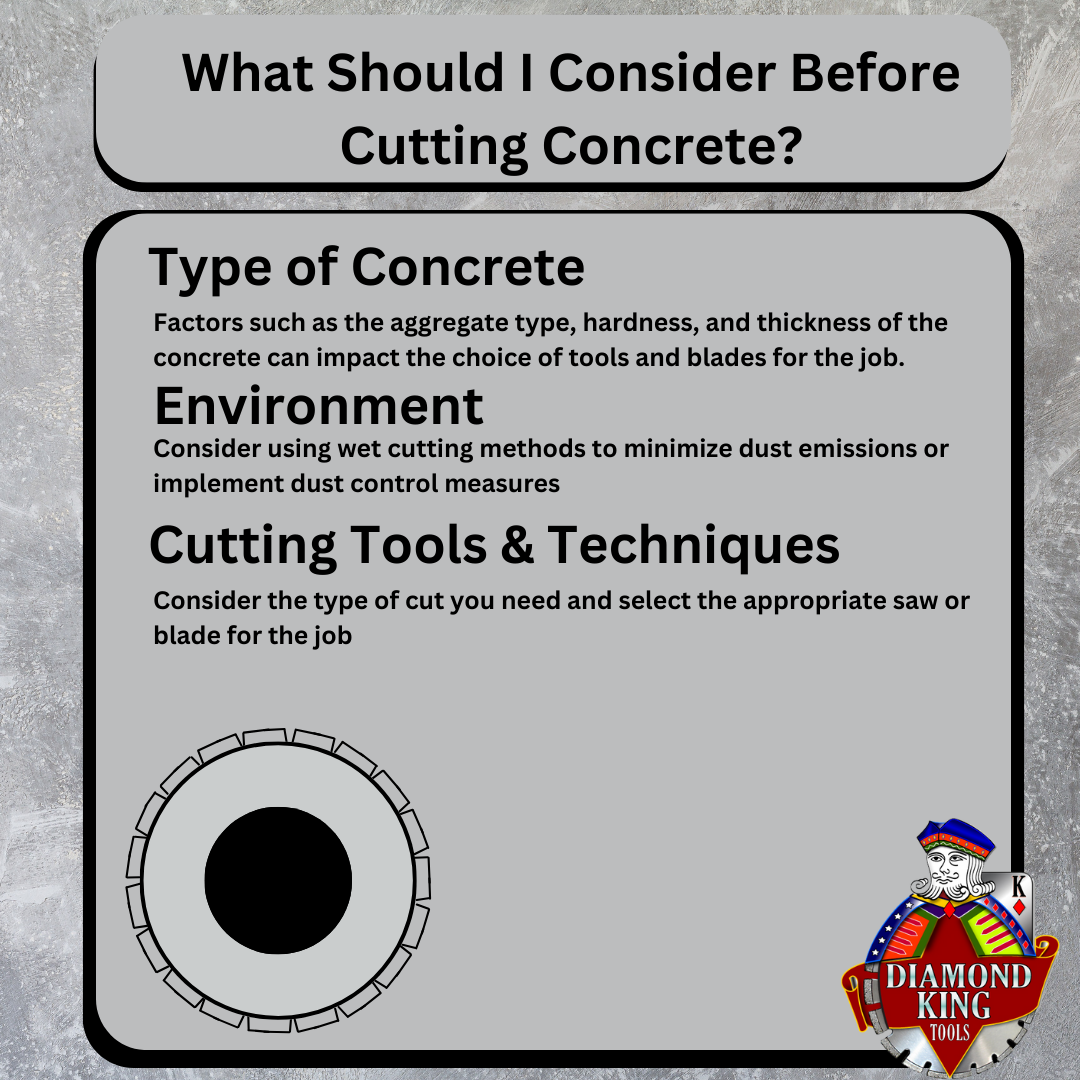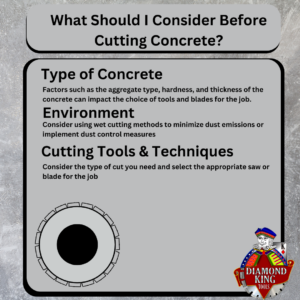Concrete cutting is a task that demands precision, planning, and the right tools. Before diving into this challenging yet essential process, it’s crucial to consider various factors to ensure a successful and efficient outcome. Here are some things to consider before cutting concrete.
- Type of Concrete:
Not all concrete is created equal. Before starting a cutting project, it’s essential to understand the composition and characteristics of the concrete you’ll be working with. Factors such as the aggregate type, hardness, and thickness of the concrete can impact the choice of tools and blades for the job. Different cutting methods may be required for reinforced concrete compared to plain concrete, and having a clear understanding of the material will guide your approach.
- Environmental Considerations:
Concrete cutting can generate a significant amount of dust and noise. Before starting the project, assess the environmental impact and take measures to mitigate any potential issues. Consider using wet cutting methods to minimize dust emissions or implement dust control measures, such as vacuum systems, to maintain a clean and safe work environment. If working in a residential area, be mindful of noise regulations and choose cutting times accordingly.
- Cutting Tools and Techniques:
Choosing the right cutting tools and techniques is paramount to the success of your project. Consider the type of cut you need – whether it’s a straight line, curve, or opening – and select the appropriate saw or blade for the job. Assess the depth of the cut and choose a tool that can handle the thickness of the concrete. Additionally, evaluate whether wet or dry cutting is more suitable for your specific application and environmental conditions.
- Project Planning and Layout:
Before making the first cut, carefully plan the project layout. Mark the cutting lines accurately, ensuring they align with your project specifications. Take into account any potential obstacles, such as embedded utilities or rebar, that may affect the cutting process. Proper planning helps minimize errors, ensures a smoother workflow, and contributes to the overall success of the project.
Before you start cutting concrete, take the time to assess the type of concrete, prioritize safety, consider environmental factors, choose the right tools and techniques, and plan the project layout meticulously. By addressing these key considerations, you set the foundation for a successful concrete cutting project that not only meets your requirements but also prioritizes safety and efficiency throughout the process. Those are some things to consider before cutting concrete.



